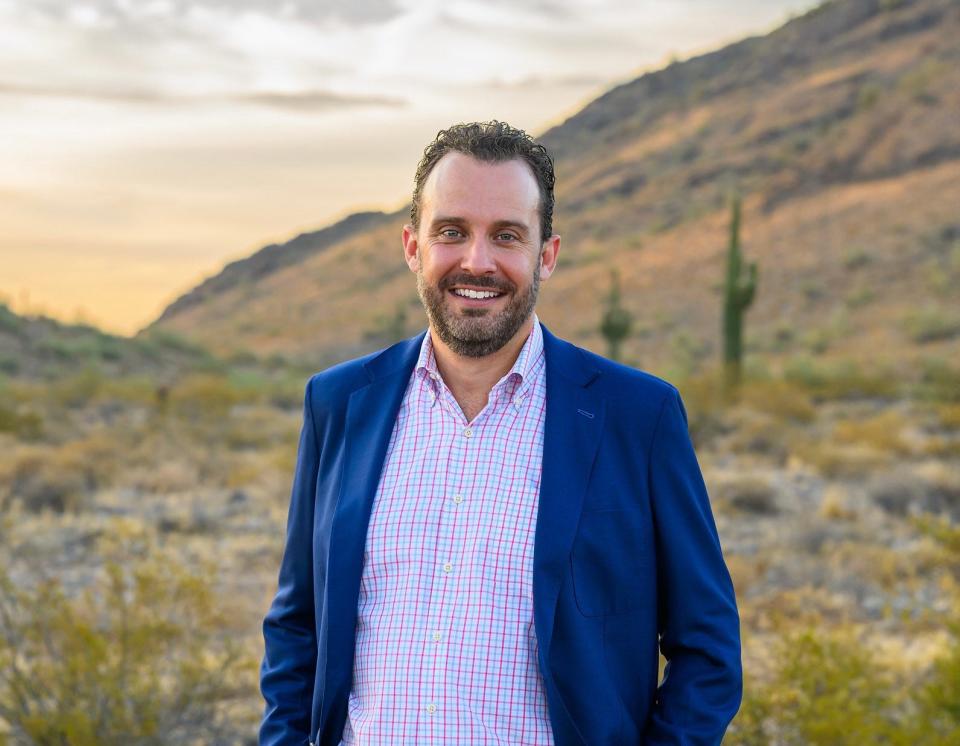Arizona congressional candidate's 3 young children gave almost $10K to his campaign
It’s standard for political candidates running for office to draw on their personal connections to raise funds, asking for buy-in from family members, friends, or work colleagues.
But Conor O’Callaghan, a Wall Street executive running in the crowded Democratic primary in Arizona’s 1st Congressional District, has accepted money from an unusual network: his young children, who are minors.
Each of O’Callaghan’s three elementary-school-aged children donated the legal maximum of $3,300 to their father’s U.S. House campaign.

According to federal campaign finance records, the donations were dated Dec. 27, four days before candidates are required to close their books for the year and report their fundraising totals.
Is it legal for children to donate to campaigns?
It’s legal for minors to donate to political campaigns under some conditions. The donation has to be “knowingly and voluntarily” given. It has to be made with funds that the minor owns or controls themselves. And the minor can’t contribute funds that they were given as a gift for the purpose of making a political donation.
O’Callaghan says all those conditions were met. He provided bank statements and receipts showing that the donations came from savings accounts registered in each of the three children’s names. All three accounts had a balance of several thousand dollars in 2022, well before their father launched his bid for office. A year and a half later, just before the donations were made, their balances had only increased by about five hundred dollars each, according to the documents.
Matt Grodsky, an O'Callaghan campaign spokesperson, said the children's contributions were received Dec. 19, and cashed on the 27th.
The three donations make up around 10% of the funds O’Callaghan raised from individuals other than himself during the last quarterly fundraising period of 2023. They represent less than 1 percent of his total cash on hand.
In an interview, O’Callaghan said his kids “are savers,” having socked away money they were given for birthdays, holidays, and other rewards over the years. He declined to disclose the ages of the children, but shared they are elementary-school age.
“From a very young age, we’ve taught our children about personal finances. They have savings accounts that were set up for them when they were infants,” O’Callaghan said.
He says the idea of a campaign donation came from his eldest son.
“My oldest son saw all the work that I was putting into this campaign, hustling every day trying to fundraise for the campaign, and asked if he’s able to contribute to the campaign,” he said.
O’Callaghan says he looked up relevant campaign finance guidelines and determined that it was allowed.
Then, “like in any family dynamic, his younger brothers wanted to do the same thing.”
Many candidates in the race have accepted money from their family members. But it is uncommon to accept money from such young children, said Craig Holman, a campaign finance expert with the consumer advocacy group Public Citizen.
Holman said the contributions were “strange” but likely legal. Even if the donations were a “facade” for O’Callaghan’s own money, he is allowed to donate unlimited amounts to his own campaign, he said.
“There’s nothing illegal about that,” Holman said.
O’Callaghan has leaned heavily on his personal wealth to finance his bid to replace incumbent Rep. David Schweikert, R-Ariz., in Congress. In 2023, he loaned his campaign $690,000 and donated an additional $123,000. That makes up about half of his total receipts.
Those donations have helped make O’Callaghan a top fundraiser in the race. He entered 2024 as the only candidate with more than a million dollars of cash on hand.
He’s not the only candidate in the Democratic primary race to use self-financing. The doctor and former state Rep. Amish Shah, has supplied about one-sixth of his total $1 million campaign receipts. The orthodontist Andrew Horne has self-funded around 80% of the $900,000 he has raked in. Kurt Kroemer, a former nonprofit executive, has supplied about half of the modest $270,000 he has received.
The two other leading fundraisers, former broadcast journalist Marlene Galán-Woods and former Arizona Democratic Party chair Andrei Cherny, have used little to none of their own money.
Laura Gersony covers national politics for the Arizona Republic. Reach her at lgersony@gannett.com or 480-372-0389.
This article originally appeared on Arizona Republic: Conor O’Callaghan's minor kids gave $9,900 to his campaign

